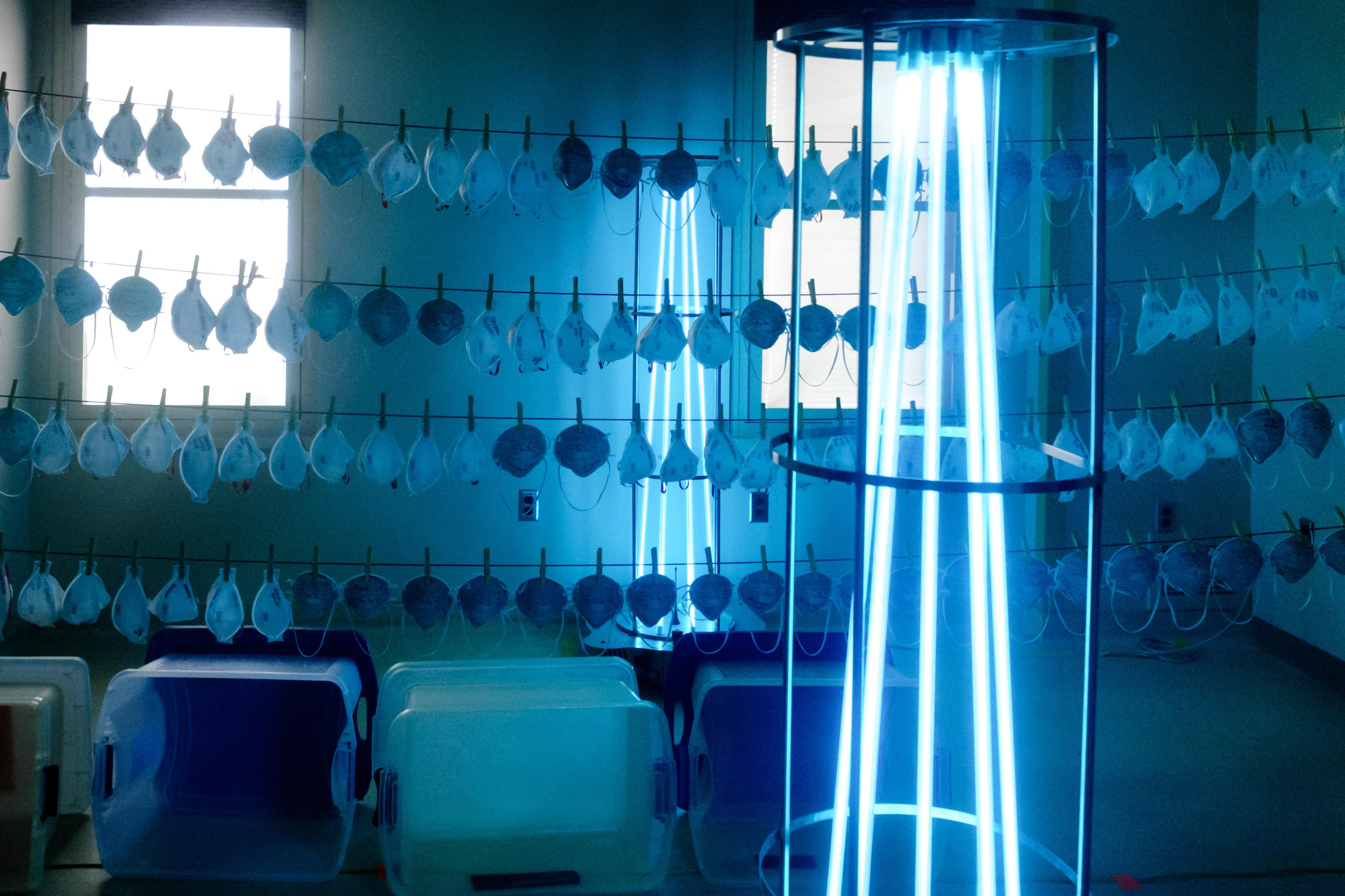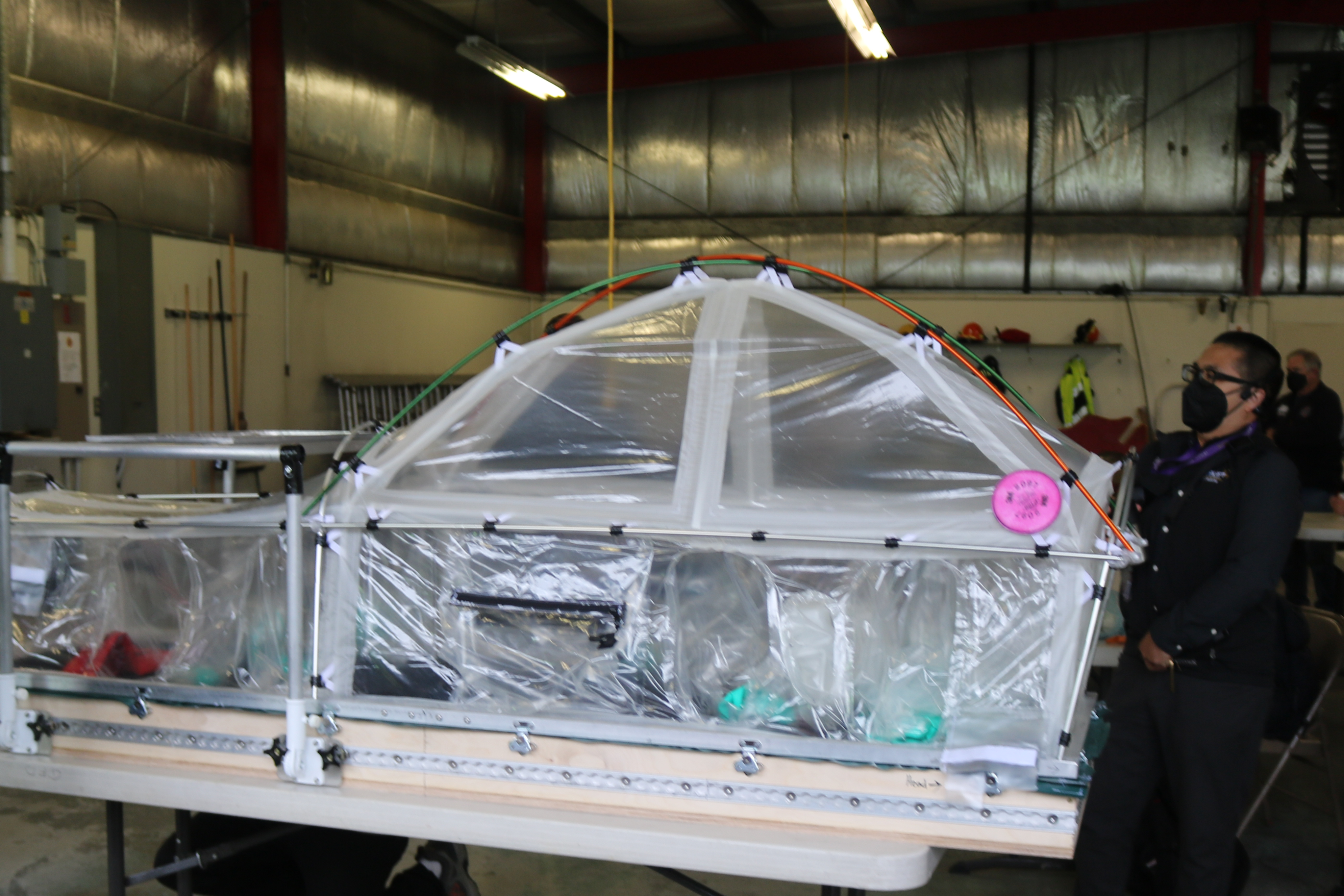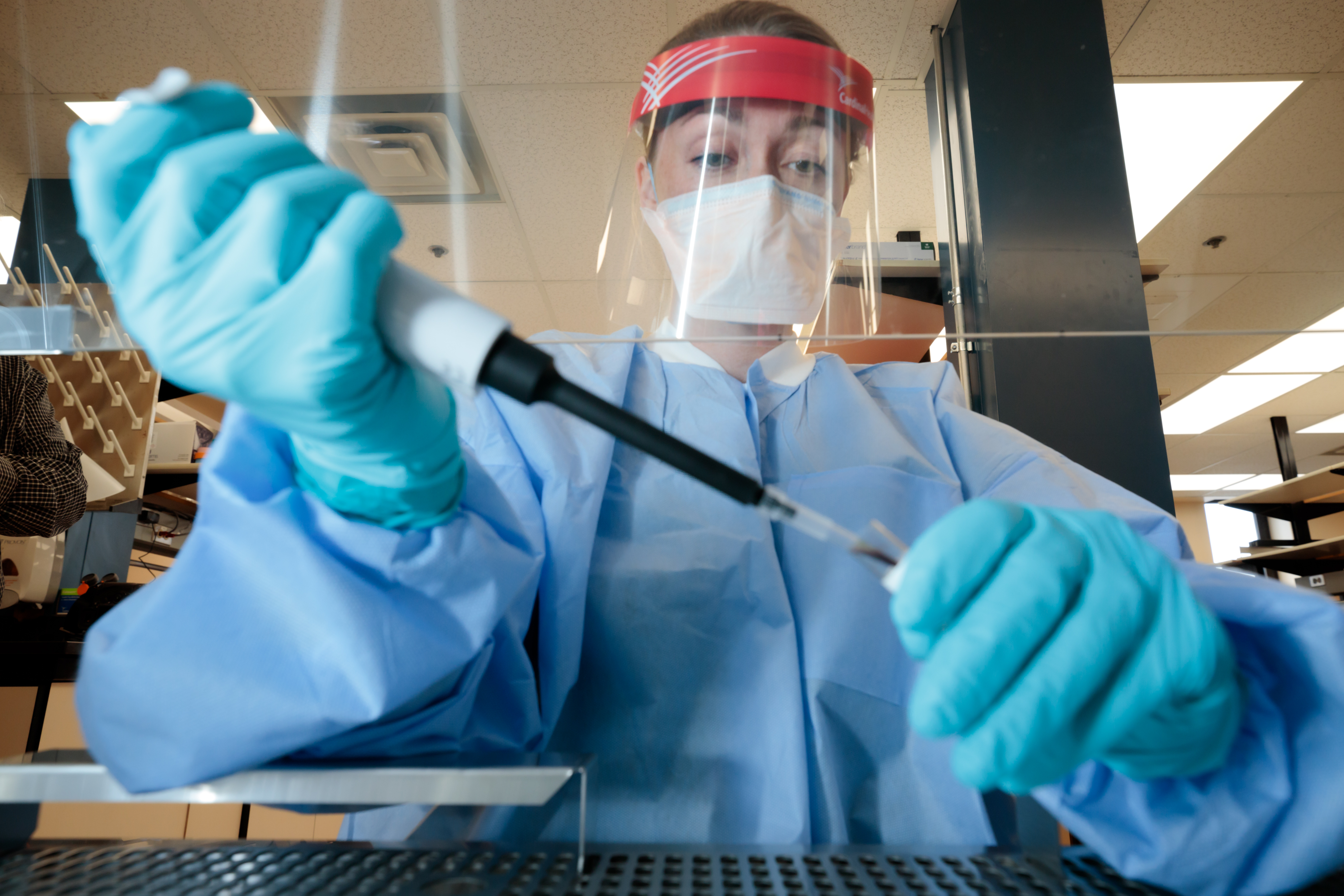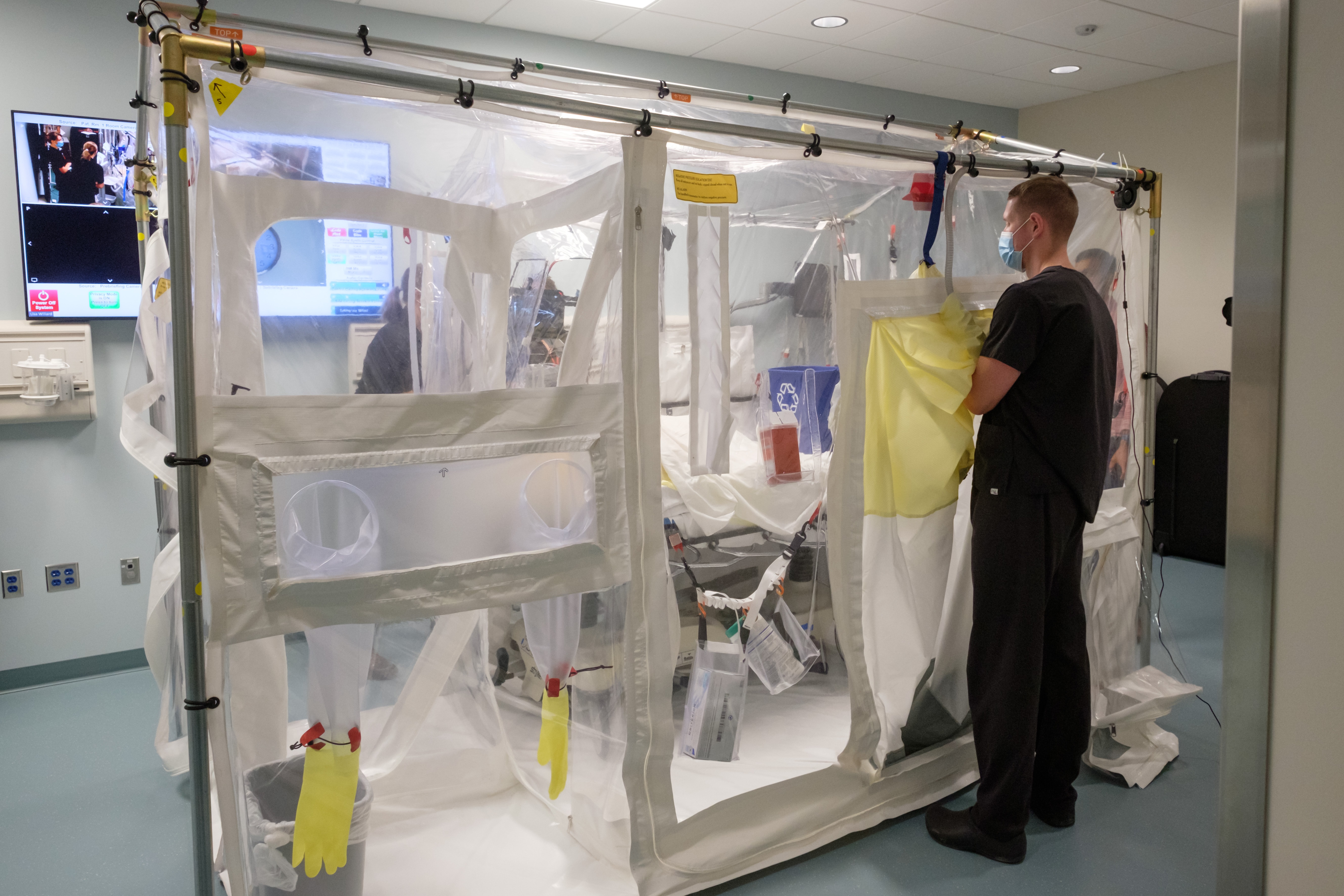
International Programs & Innovation
Innovating through research, development, and external partnerships
The GCHS actively builds relationships with international partners to share best practices, learn from past experiences, and prepare collaboratively for future disasters. Through its programs and global memberships, GCHS is not only expanding its international collaborations but also enhancing its specialized expertise in biocontainment and infection prevention and control.
As natural and human-made emergencies continue to rise, there is an increasing demand
for innovative approaches to preparedness and response. The innovative minds at the GCHS
made significant contributions during the COVID-19 pandemic, advancing our understanding of
airborne transmission of SARS-CoV-2, disease prevalence, transmission and detection.Today,
these innovators remain focused on pioneering new strategies and solutions for emergency
preparedness and response.
Explore
Innovation
The GCHS collaborates with numerous academic groups from UNMC and Nebraska Medicine as well as external partners to address the most urgent health threats. Innovation is critical to ensuring preparedness for the future. Explore several innovations made possible by the work and expertise of GCHS staff, scholars, and affiliates.
Click here to learn more about GCHS InnvovationInternational Programs & Engagement
GCHS recognizes the critical need for global partnerships in achieving health security, as emerging pathogens know no borders. Controlling pandemics early requires international collaboration and engagement. While the COVID-19 pandemic hampered global cooperation, GCHS has since prioritized reconnecting with partners to apply pandemic lessons learned.
Click here to learn more about GCHS International EngagementGCHS Domains
Learn more about our other domains
Innovation
 /3
/3
N-95 Decontamination Using UV Light
 /3
/3
ISTARI's Model 1A. Static Exercise in Quilcene, WA.
 /3
/3
Dr. Broadhurst and her team developed a PCR diagnostic test for SARS-CoV-2 detection to support repatriated Americans before public health or commercial tests were available.
